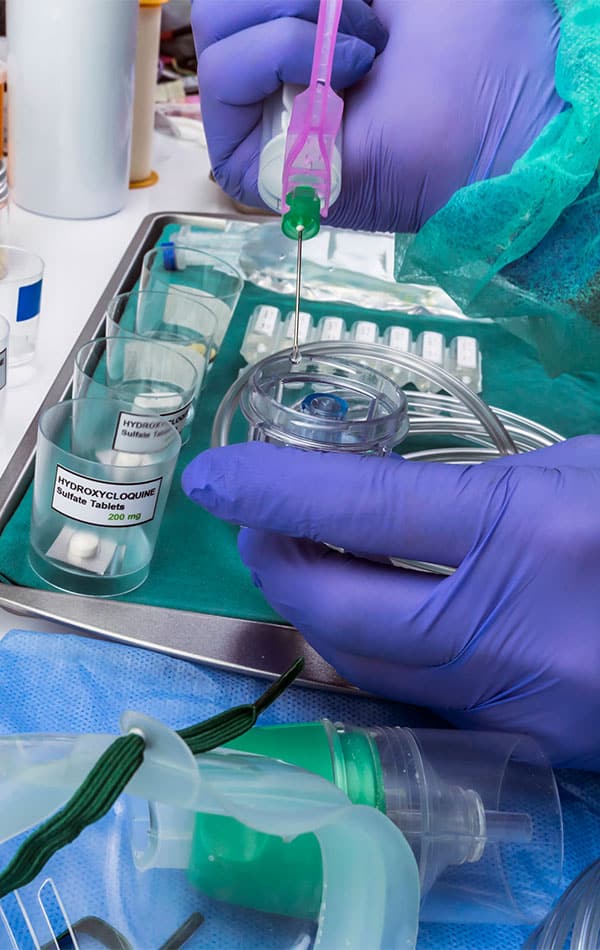Clinical Research at CRN
Understanding Food Allergies and Food Challenges
Food allergies are a significant public health concern, affecting millions of people worldwide. A food allergy occurs when the immune system mistakenly identifies a harmless food protein as a threat, leading to an allergic reaction. These reactions can range from mild symptoms, such as hives or itching, to severe, life-threatening conditions like anaphylaxis. Food challenges, on the other hand, are a diagnostic tool used to confirm or rule out food allergies in a controlled setting.

Key Features of Food Allergies:
Common Food Allergens: The most common food allergens include peanuts, tree nuts, milk, eggs, wheat, soy, fish, and shellfish. These foods are responsible for the majority of allergic reactions.
Symptoms: Food allergy symptoms can vary widely and may include hives, itching, swelling of the lips or face, gastrointestinal distress, difficulty breathing, and in severe cases, anaphylaxis, which requires immediate medical attention.
Diagnosis: Diagnosing food allergies typically involves a combination of patient history, skin prick tests, blood tests, and oral food challenges. Oral food challenges are considered the gold standard for diagnosing food allergies.
Food Challenges:
Oral Food Challenge (OFC): An oral food challenge is a supervised procedure in which the patient consumes small, gradually increasing amounts of the suspected allergen while being closely monitored for any adverse reactions. OFCs are the most accurate method for diagnosing food allergies and are used to confirm a diagnosis, assess the severity of an allergy, or determine if a child has outgrown an allergy.
Types of Food Challenges:
Open Food Challenge: Both the patient and the clinician know what food is being tested.
Single-Blind Food Challenge: The patient does not know what food is being tested, but the clinician does.
Double-Blind, Placebo-Controlled Food Challenge (DBPCFC): Neither the patient nor the clinician knows which food is being tested, reducing bias and providing the most reliable results.
Effective management of food allergies requires accurate diagnosis, education on allergen avoidance, emergency preparedness, and, in some cases, ongoing treatment such as immunotherapy.

Clinical Trials in Food Allergies and Food Challenges
Clinical trials are crucial for advancing the understanding and treatment of food allergies. These studies explore a variety of approaches, including new diagnostic methods, treatments, and preventive strategies to improve patient outcomes and quality of life. Key areas of research in food allergies and food challenges include:
New Diagnostic Tools: Developing and testing new diagnostic methods, such as improved skin tests, blood tests, and molecular assays, to enhance the accuracy and reliability of food allergy diagnoses.
Oral Immunotherapy (OIT): Investigating the efficacy and safety of oral immunotherapy, a treatment that involves gradually increasing doses of the allergen to desensitize the immune system and reduce the severity of allergic reactions.
Epicutaneous and Sublingual Immunotherapy: Exploring alternative immunotherapy methods, such as epicutaneous (skin patch) and sublingual (under the tongue) therapies, which may offer safer or more convenient treatment options for patients.
Food Challenge Protocols: Evaluating different food challenge protocols to improve safety, accuracy, and patient comfort during diagnostic testing.
Preventive Strategies: Researching strategies to prevent the development of food allergies, particularly in high-risk infants and children, including early introduction of allergens and dietary modifications.
Patient-Centered Outcomes: Assessing the impact of new treatments and management strategies on patients’ quality of life, including anxiety reduction, dietary freedom, and overall well-being.
Participation in clinical trials for food allergies and food challenges provides patients with access to the latest treatments and contributes to the development of new therapies and diagnostic tools that can significantly improve the management of these conditions.
CRN’s Expertise in Food Allergies and Food Challenge Clinical Trials
CRN is a leader in conducting clinical trials for allergic conditions, including food allergies. Our extensive experience and deep understanding of immunology and allergy research make us the ideal partner for successful clinical trials in this field.
Why Choose CRN for Food Allergy and Food Challenge Trials?
Specialized Expertise in Allergy Research: CRN has a proven track record in conducting clinical trials for food allergies, including studies on new diagnostic methods, immunotherapies, and preventive strategies. Our investigators are leading experts in allergy and immunology, bringing years of clinical experience and scientific knowledge to your study.
Comprehensive Patient Recruitment: Recruiting patients for food allergy trials requires targeted strategies to help confirm that participants meet specific criteria, such as confirmed allergies to certain foods or candidates for immunotherapy. CRN excels in patient recruitment, utilizing a robust database and targeted outreach strategies to enroll participants quickly and efficiently.
Advanced Trial Designs: Food allergy trials require careful planning and execution to help protect participant safety, particularly during food challenges. CRN offers adaptive trial designs that can be tailored to the unique needs of your study, helping generate results that are both meaningful and applicable to a broad patient population.
State-of-the-Art Research Facilities: Our research sites are equipped with advanced diagnostic tools and safety measures essential for conducting food challenges and monitoring treatment effects. This includes allergy testing, emergency medical equipment, and trained staff to manage potential adverse reactions.
Regulatory Compliance and Quality Assurance: Conducting trials in food allergies requires strict adherence to regulatory standards, particularly in high-risk procedures like food challenges. CRN provides full regulatory support, helping your study comply with all necessary guidelines from IRB approval to FDA submissions. Our commitment to quality assurance supports the conduct of your trial according to GCP standards, resulting in robust and credible data.
Patient-Centric Approach: Food allergies can significantly impact patients' quality of life, particularly in children and their families. CRN adopts a patient-centric approach, providing comprehensive support and education throughout the trial process. This approach contributes to high retention rates and a positive experience for participants.
Proven Success in Allergy Research: CRN has a history of success in conducting allergy trials, including those focused on food allergies and food challenges. Our expertise in this area has made us a trusted partner for pharmaceutical companies, CROs, and other organizations focused on advancing allergy care.
Partner with CRN for Food Allergy and Food Challenge Research
Food allergies are a growing concern, but with continued research, we can improve diagnosis, treatment, and management strategies to enhance the lives of those affected. If you are looking to conduct a clinical trial in food allergies or food challenges, CRN is the ideal partner. Our experience, resources, and commitment to excellence support the execution of your trial with precision, integrity, and professionalism.
Contact CRN today to learn more about how we can support your food allergy and food challenge clinical trials and help bring innovative therapies and diagnostic tools to patients in need.